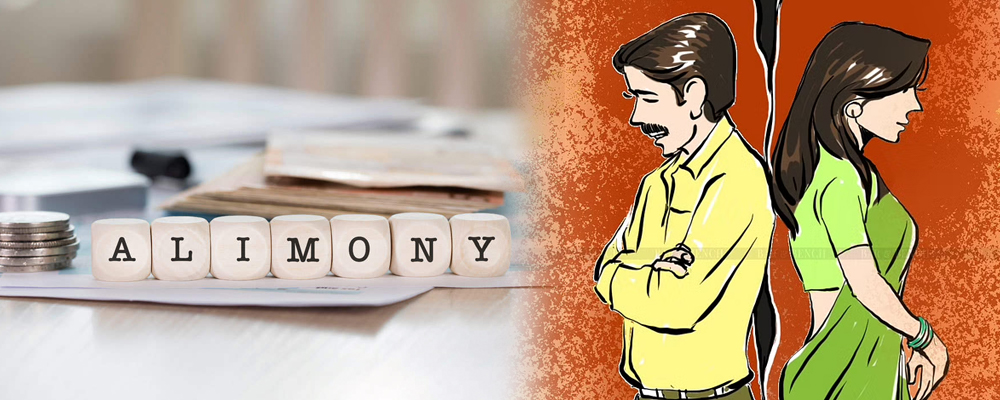Marriage symbolises the start of a relationship that society expects to last a lifetime. However, this union does not always work out as planned because of the partners’ personal issues, which eventually disrupt their lives and make them intolerable. Such people have benefited from divorce in these circumstances by separating legally from their spouse. The legal way to end a relationship is divorce settlement, which requires consent from both sides. The provision of financial support from one spouse to another following a divorce is known as alimony. It is typically given when a spouse is unable to meet his or her own basic needs. Alimony may be paid to either spouse under Indian law, however, it is typically given to the wife by the husband. In India, there are two sorts of alimony: interim maintenance, which is paid while legal separation proceedings are ongoing, and final maintenance, which is paid for legal separation.
The maintenance rights of a woman in India are governed by the personal laws of several religions. There are different provisions for those who can claim maintenance under these personal laws, which deal with marriage, divorce, and maintenance.
Need A Legal Advice
The internet is not a lawyer and neither are you. Talk to a real lawyer about your legal issue

Provision For Alimony Under Hindu Laws:
Hinduism holds that it is the husband’s spiritual responsibility to care for and provide for his wife. On the occasion of marital divorce, each spouse has the right to request support from the other under Section 24 of the Hindu Marriage Act of 1955. As a result, there is no distinction made between men and women in this area. This maintenance is dependent on things like the husband’s income, his assets and liabilities, the wife’s financial situation, her employment, etc. Alimony is, however, decided on the merits of each case in contested cases. In other cases, alimony may not be paid at all depending on the facts and circumstances. The court has complete discretion over the amount of maintenance. Section 25 prescribes the provision for permanent alimony. It states that the court which has the jurisdiction shall consider the circumstances of the applicant and order the non-applicant to pay for the maintenance. When a lump sum is paid at the time of legal separation, rather than monthly instalments, it is called alimony.
Only the woman is eligible to request permanent alimony if the pair was married under the Special Marriage Act of 1954.
Provision Under Muslim Laws:
To claim the alimony amount in this case, the parties must first choose which statute to appeal under. According to Islamic law, women have the right to alimony. Muslim women have an unalienable right to maintenance, according to Sharia. Even if the wife is wealthy and the husband is struggling financially, the right is unaffected.
Provision Under Christian Laws:
Sections 36, 37, and 38 of the Indian Divorce Act of 1869 deal with the maintenance of the wife according to Christian law. The Indian Divorce Act addresses the issue of perpetual alimony under Section 37. In each circumstance, the court may impose a reasonable requirement that the spouse provided a weekly or monthly payment for her maintenance. The court may provisionally revoke or suspend the order if the husband is incapable of making the payment in the future. Under Section 37, the following elements are taken into consideration:
- Parties’ behaviour both before and after marriage.
- Income kind and source for the husband.
- Wife’s personal wealth, if any.
Circumstances Under Which Husband Can Claim Alimony:
The fact that males can occasionally find themselves in a difficult situation during a divorce should be taken into account by the judges when they affirm their decision.
Therefore, as the legislation is gender-neutral, they should likewise give alimony to the husbands. Although it is uncommon, the male partner may also be eligible for alimony. It was shown in a 2014 case when the wife was charged with torturing her physically challenged husband both physically and mentally and ultimately sentenced to pay alimony. The bench added that any reasonable person should not be able to tolerate the harsh behavior. If a spouse suffers from a persistent condition that prevents him from earning a living, he may make a maintenance claim against his wife. Additionally, the court may order the woman to pay the husband if it appears during the process that he is not financially able to cover the costs of the court procedures, taking into account both his and her income and may seem equitable.
Grounds Upon Which Alimony Is Decided:
- If the life partner is already married to someone else and is now receiving support throughout the separation period, they are not eligible for alimony. Even yet, the divorce settlement’s compensation might be changed in certain situations while taking the arguments for securing the backing into consideration.
- In the case of a contentious divorce, life partners are unable to agree on alimony’s definition or the appropriate payment amount. In these situations, the court has the task of deciding on the amount of support to be paid and order for financial settlement.




